
 |
|
Vyacheslav Igrunov's curriculum vitae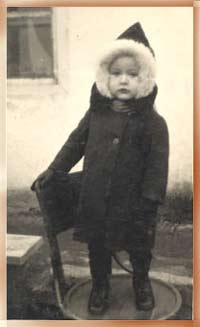 I was born on the 28th of October, 1948 in the village Chernitsy of Zhytomer area. My mother worked there as a village doctor while my farther continued his studies in the Institute of National Economy. In 1951 when, on having fulfilled 2 years in Voronezh on Institute distribution, my farther could change the place of service my family moved into the regional center Andrushevka of Zhytomer area. In 1956, when I passed into the 2nd form, my farther finally succeeded in returning to his native city of Odessa. There the five of us lived in the 14th-meter room of a huge communal flat in the Pirogovskaya street. My school life wasn’t easy – I was a difficult child, therefore, probably, have grown a difficult adult. Not once I was severely punished, several times I was expelled from school, the classes which I certainly spoilt were retransformed. But I finished school with conviction that something wrong was rather not with me, but with the society, in which I had grown up. In the 11th form when I was choosing a Moscow Institute to study theoretical physics and working at the same time on the poetical cycle “The City’s Day”, I understood that alteration of the society which didn’t satisfy me because of its moral corruption is a more important purpose for me than opening of new powerful sources of energy. Debates in the poetical club “Acacia”, where I had been brought by my friend Nikolay Bazilev, played a very important role in that decision. In October 1965 Bazilev and I created an illegal Marxist revolutionary organization, which existed until June 1966 and lay a fundament for the informal group of dissidents, which acted to the middle of 1980-s. Two years later, by the end of 1967, we not only refused from revolution as a political instrument but also became extreme antisoviets and liberals. This shift was largely due to our interest in painting and the history of culture, which we studied together with my friend Vitaly Sazonov. In 1968 our group made an attempt to support the Prague spring which resulted in interrogations in KGB, but which fortunately didn’t lead at that time to dramatic consequences. The main loss turned to be elimination of manuscripts of the book “Of socialism”, on which I had been working in 1967-68. The work on that book along with the Samizdat library led to a rather rapid growth of our contacts with dissident intelligenzia of Odessa.
Crisis in Human rights' movement in the USSR (1979) which coincided with crisis of our dissident group in Odessa led to decrease in my organizational activity. To that period refer my attempts to restore and develop program of economical and political reforms of the 70s by myself as well as to continue the work over “Homo sapiens?” My most important works for me of that time are “Medicine as Source of Genetic Burden” and sketches on ecological aspects of economical reforms. But today correspondence with Michail Gefter and Gleb Pavlovsky started in 1980 I perceive as more interesting. II
The most productive for me appeared the work which I thought a second-rate. This was my participation in informal political clubs, primarily in the KSI (The Club of the social initiatives), where I came in the autumn of 1986 and in “Perestroika”. During preparation of the August Forum of the informals “The first meeting-dialogue: social initiatives in Perestroika” I wrote the Declaration of Memorial, which I saw only as a literature support for Yury Samodurov, who wished to erect the monument to the illegally repressed. At first there was realized a small project – edition of the paper “Chronograph” which was a continuation of Dmitry Leonov’s newspaper “Molva” and which played an important part in the social movement. Probably for this reason we managed to receive a grant from the Institute of Culture of Russian Federation for building a database of new social organizations. This grant permitted us to create certain material fundament which later was called “Moscow Public Bureau of informational interchange” (M-BIO). To number all the projects connected with M-BIO is absolutely impossible. I may name some of them. Primarily this was M-BIO Archive, the first and the biggest collection of documents and editions of the Perestroika period. Then I may call the system of production and distribution of samizdat and new press which existed for several years and covered with its network almost the hole Soviet Union. Then these were one of the most popular paper of political samizdat “Panorama”, directories which predetermined the character of Informational and analytical service “Panorama”. Finally these were High Sociological Courses of Soviet Sociological Association of Academy of Science of the USSR (VSK) and many, many other projects. 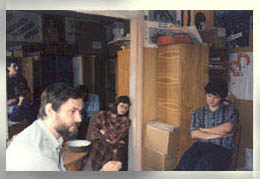 In M-BIO there worked an organizing committee of the all-Union Memorial society. There was founded also Human-rights’ center of Memorial. It was also M-BIO where Victor Zolotarev suggested organizing a pre-congress meeting of people’s deputies of the USSR. M-BIO was also a dispatcher office of that unprecedented event. It was M-BIO where we together with Andrey Fadin and Yury Permyakov planned technologies for self-organization of democratic deputies, which after a series of meetings in the Scientists’ House led to creation of the Inter-regional Deputy Group (MDG). The Congress of the peoples’ deputies of the USSR resulted in appearance of political life in the Soviet Union. Under these conditions M-BIO was to either concentrate its work on support of the MDG activity or to gradually step aside to the periphery of the social life. Direct television broadcast of the Conference turned to be non-comparably more powerful information beacon then any other press, especially the samizdat one. Besides in 1990 there appeared the newspaper “Kommersant” and a bit later – “Nezavisimaya paper”. But our work with MDG failed which resulted in M-BIO marginalization. Non-commercial orientation of M-BIO began to arise more and more strong tensions both within the team and in cooperative society “Perspective”, on the base of which we existed. Finally M-BIO collapsed, having divided into three structures: Informational and analytical center “Panorama”, the group of Alexander Morozov, which left to work in the Postfactum Agency and the Institute of the Humanities and Political studies (IGPI), established on the 2nd of September, 1990. M-BIO crisis of the summer-autumn of 1989 quite clearly revealed the necessity of its transformation. Therefore I gladly received George Soros suggestion to head the program “Civil Society” in the “Cultural Initiative” Foundation. My main task was to create the network of stuff search for the social movement and forming political elite in the country. Therefore we not just distributed grants but also stimulated appearance of organizations and assisted in becoming of new structures. Among such structures there was Committee “Civil Assistance”, Moscow School for Political Studies of Elena Nemirovskaya, Institute of the National Model of Economy of Vitaly Naishul, analytical centers, which later played a big part not only in Russia but also in Georgia, Armenia, Ukraine, Uzbekistan, for example the Center of Market Reforms of Michail Pogrebinsky. We supported a row of democratic editions, charitable organizations, human-rights groups. The program was in the center of real wars, primarily within the Foundation itself. After Gaidar’s team - my political opponent - coming to power, there began to appear disagreements with George Soros. Moreover, the growth of tension in the country was in the direct contradiction with slow and gradual work of the program “Civil society”. I decided to leave the Foundation and return into the political sphere. It was very hard to fulfill because two years of absence in the political sphere throw from the board even the most influential people, therefore some intermediate steps were required. One of them was coming to the State Committee for the Nationalities Affairs (Goskomnats), where on the suggestion of Minister Valery Tishkov I headed the Analytical Center. The suggestion was connected with development of IGPI program “Political Monitoring”, started in 1992 and a series of publications on the ethnopolitical theme. It was not a bad start but the task was to create a political team able to bring to the Parliament a big group of talented people. For such a project I needed a partner. By the end of 1992 I stopped my choice on Grigory Yavlinsky. III My meeting with Yavlinsky, organized by Gleb Pavlovsky, took place in the beginning of May, 1993, in Gefter’s country-house. Many-hours’ conversation led to the conclusion of a union, in which each of us set his own aims but took an obligation to help the other in achieving his aims. This union developed but slowly till the time when our relations hardly broke because of different position on the Decree 1400 and events of October 3-4, 1993. But on Yavlinsky’s initiative the relations were restored because of his decision to stand for the State Duma. Our relations still cooled because of the course of the electoral campaign and the elections results of December 12.
Only in the end of 1994 I headed the Organizational Committee of the Yabloko Association. My work on the party building was facilitated by the improving relations after the crisis, caused by the started Chechen war. On the 5th of January, 1995 the Opening Conference of Yabloko Association took place. Having become the member of the Central Council Bureau I headed the committee for party building and work with regional organizations (regional committee), that gave me an opportunity to correct the process of party building. Despite of enormously difficult relations with the Party leader which brought me on the verge of break with Yavlinsky, since October 1996 there began a three-year period of our rather close cooperation. On the Yabloko 5th Conference, Oct. 31 – Nov. 1 1996 I was elected a vice-chairman by the overwhelming majority of votes.
Nevertheless my activity is not limited by SNG orientation as well as it is not reduced to the international one. In the summer of 2001 Pavlovsky offered me to become a member of the Organizing Committee of the Civil Forum. See also: From the Psychiatric Hospital to the Russian Duma. One Man's Story. Viatcheslav Igrunov as told to Ellen Mercer. Уважаемые читатели! Мы просим вас найти пару минут и оставить ваш отзыв о прочитанном материале или о веб-проекте в целом на специальной страничке в ЖЖ. Там же вы сможете поучаствовать в дискуссии с другими посетителями. Мы будем очень благодарны за вашу помощь в развитии портала!
|
||
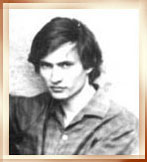 By the beginning of the 1970s persistent work for uniting all the currents of the dissidents into the single politico-cultural community, creation of the common informational field for it brought rather significant results. There were established various contacts in other cities and, primarily, in Moscow. The Samizdat library by the end of the 70s functioned in the dozen cities of the USSR and had a couple of minor branches – in Zaporozhye and Novosibirsk. We were ordered books not only in such cities as Leningrad, Riga, Kiev, but also in Moscow, for which we prepared small circulations. On the first stage the library was finances by the Honorable donor of the USSR Valery Rezak, who yield his blood. It was he who also was the first and the main technical operator, who created that library under fantastically difficult conditions. Subsequently to finance the library we used the money earned in the artistic folk crafts shop. But when due to KGB efforts it ceased its work and almost all possible books from personal libraries were sold, we together with Oleg Kursa made up a small second-hand enterprise through which the library continued to be supplied until my very arrest on the 1st of March, 1975.
By the beginning of the 1970s persistent work for uniting all the currents of the dissidents into the single politico-cultural community, creation of the common informational field for it brought rather significant results. There were established various contacts in other cities and, primarily, in Moscow. The Samizdat library by the end of the 70s functioned in the dozen cities of the USSR and had a couple of minor branches – in Zaporozhye and Novosibirsk. We were ordered books not only in such cities as Leningrad, Riga, Kiev, but also in Moscow, for which we prepared small circulations. On the first stage the library was finances by the Honorable donor of the USSR Valery Rezak, who yield his blood. It was he who also was the first and the main technical operator, who created that library under fantastically difficult conditions. Subsequently to finance the library we used the money earned in the artistic folk crafts shop. But when due to KGB efforts it ceased its work and almost all possible books from personal libraries were sold, we together with Oleg Kursa made up a small second-hand enterprise through which the library continued to be supplied until my very arrest on the 1st of March, 1975.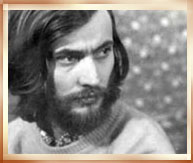 Experience of the workshop played a decisive role in molding my outlook. Romantic anarchical liberalism was replaced with realizing of the deep determinancy of the political and economical behaviour of people as well as state-system by the cultural tradition. Inevitability of compromise as an instrumental embodiment of the aspiration to the ideal I formulated in the article “To the Problematics of Social Movement” (1972), which became the starting point of my political science. Compromise as a style became the basis of the program of reforms of the soviet economical and political system designed for 25 years. Possible reforms of the soviet society were considered in the context of the world dynamics and premises of the civilizational transformation, the main ideas of which were formed in our circle by the autumn of 1969. An important place was occupied by reflection about genetic and bio-social evolution of man, which inspired me to work on the book “Homo sapiens?” This work was interrupted by my expel from the Institute of the National Economy and from the work at the Philosophy department at the Medical Institute because of investigation of the “anti-Soviet Igrunov group” activity.
Experience of the workshop played a decisive role in molding my outlook. Romantic anarchical liberalism was replaced with realizing of the deep determinancy of the political and economical behaviour of people as well as state-system by the cultural tradition. Inevitability of compromise as an instrumental embodiment of the aspiration to the ideal I formulated in the article “To the Problematics of Social Movement” (1972), which became the starting point of my political science. Compromise as a style became the basis of the program of reforms of the soviet economical and political system designed for 25 years. Possible reforms of the soviet society were considered in the context of the world dynamics and premises of the civilizational transformation, the main ideas of which were formed in our circle by the autumn of 1969. An important place was occupied by reflection about genetic and bio-social evolution of man, which inspired me to work on the book “Homo sapiens?” This work was interrupted by my expel from the Institute of the National Economy and from the work at the Philosophy department at the Medical Institute because of investigation of the “anti-Soviet Igrunov group” activity. 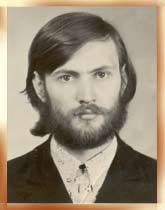 After my release in January 1977 I tried to continue this work along with the attempts to create a mechanism of involving a more significant number of participants into it. But these attempts didn’t bring any considerable result. “Almanach-77”, which I saw as a thick journal focused mainly at working out new ideological paradigms and creation of program of complex reforms, failed – primarily because of appearance of another journal – “Poiski” (1978). Attempts – after termination of “Poiski” edition - to found the Institute of the Public Thought (1980) also resulted in nothing.
After my release in January 1977 I tried to continue this work along with the attempts to create a mechanism of involving a more significant number of participants into it. But these attempts didn’t bring any considerable result. “Almanach-77”, which I saw as a thick journal focused mainly at working out new ideological paradigms and creation of program of complex reforms, failed – primarily because of appearance of another journal – “Poiski” (1978). Attempts – after termination of “Poiski” edition - to found the Institute of the Public Thought (1980) also resulted in nothing.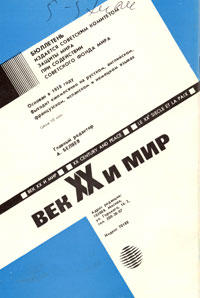 Feeling of the approaching catastrophe led me in the autumn of 1983 to decision to move to Moscow and make a desperate attempt to collect a team for working out the reform program. Nevertheless everyday household problems detained realization of this decision until the summer of 1987 when for the first time was published my article in the bulletin “The XXth century and the world”. In Moscow I tried to renew a thick journal still more vital now as approaching revolution and erroneous decisions of the state authorities left no chance for the country to escape the crush. These my ideas were not shared even by the most close people. Concurrently, the ordered series of my articles “Reconstruction means revision” the first of which already existed in the proves of the “The XXth century” happened not to be published. The greatest support at that time I got from Sergey Belanovsky, in whose family I lived, and Gleb Pavlovsky, who published fragments of that article binding them to different texts.
Feeling of the approaching catastrophe led me in the autumn of 1983 to decision to move to Moscow and make a desperate attempt to collect a team for working out the reform program. Nevertheless everyday household problems detained realization of this decision until the summer of 1987 when for the first time was published my article in the bulletin “The XXth century and the world”. In Moscow I tried to renew a thick journal still more vital now as approaching revolution and erroneous decisions of the state authorities left no chance for the country to escape the crush. These my ideas were not shared even by the most close people. Concurrently, the ordered series of my articles “Reconstruction means revision” the first of which already existed in the proves of the “The XXth century” happened not to be published. The greatest support at that time I got from Sergey Belanovsky, in whose family I lived, and Gleb Pavlovsky, who published fragments of that article binding them to different texts. 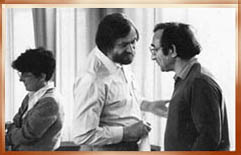 But it turned so overburdened with disagreements with the appeared after meeting-dialogue movement “Pamyatnik”, that over 1987 – 89 I, standing for the proposed concept, had to play one of the principal roles in development of Memorial. The Meeting-dialogue brought to life not only Memorial, but many other projects, which played later a quite considerable part in the development of democratic movement of the 80s. One of them was an inter-club initiative group, within which our group – Grigory Pelman, Pavlovsky and me – initiated creation of informational and coordination center of political clubs.
But it turned so overburdened with disagreements with the appeared after meeting-dialogue movement “Pamyatnik”, that over 1987 – 89 I, standing for the proposed concept, had to play one of the principal roles in development of Memorial. The Meeting-dialogue brought to life not only Memorial, but many other projects, which played later a quite considerable part in the development of democratic movement of the 80s. One of them was an inter-club initiative group, within which our group – Grigory Pelman, Pavlovsky and me – initiated creation of informational and coordination center of political clubs.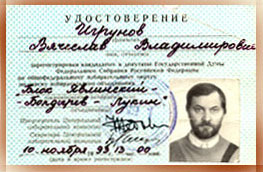 Having become the deputy from the block “Yavlinsky-Boldyrev-Lukin”, I actively participated in the preparation of the Duma’s rules, as well as initiated creation of the Committee for SNG affairs, the vice-chairman of which I became after the distribution of the Duma’s posts. At first I concentrated on the work in Duma as I had no contacts with Yavlinsky for several months. After the election to the Parliament party building was charged to other people.
Having become the deputy from the block “Yavlinsky-Boldyrev-Lukin”, I actively participated in the preparation of the Duma’s rules, as well as initiated creation of the Committee for SNG affairs, the vice-chairman of which I became after the distribution of the Duma’s posts. At first I concentrated on the work in Duma as I had no contacts with Yavlinsky for several months. After the election to the Parliament party building was charged to other people. 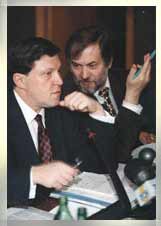 The State Duma electoral campaign of 1999 again revealed significant disagreements. Yavlinsky refused to accept the concept of the electoral campaign which I offered as the campaign manager. On the contrary after the defeat at the elections he started a severe campaign of struggle with me, which resulted in my defeat and the Union reorganization. After that my leaving of Yabloko was inevitable. My moral obligations detained me in the party until the autumn of 2001 when I left the posts of both Central Council and Bureau member, and a bit later also the post of the Moscow regional organization Chairman.
The State Duma electoral campaign of 1999 again revealed significant disagreements. Yavlinsky refused to accept the concept of the electoral campaign which I offered as the campaign manager. On the contrary after the defeat at the elections he started a severe campaign of struggle with me, which resulted in my defeat and the Union reorganization. After that my leaving of Yabloko was inevitable. My moral obligations detained me in the party until the autumn of 2001 when I left the posts of both Central Council and Bureau member, and a bit later also the post of the Moscow regional organization Chairman. 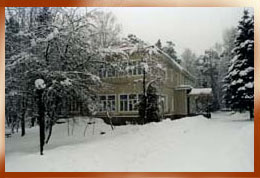 Since the autumn of 2000 I concentrated my chief attention on the restoring of IGPI activity, which had to drop its main program “Political Monitoring” in February 2000. On the 15th of September there started regular seminars in the Educational Center in Cherkizovo. Since the spring of 2000 the members of the Institute have successfully participated in electoral campaigns of various levels. In the parallel I set forward a row of International initiatives, aspiring to achieve in this sphere cooperation of social and state structures. In 2001 the most successful was the work within the Ukraine Year program. The most important landmarks were: creation of Public Council of Ukraine-Russia cooperation (OSURS), organizing of the Summer Camp for young politicians of Russia and Ukraine and carrying out the All-Russian Congress of the Ukraine natives.
Since the autumn of 2000 I concentrated my chief attention on the restoring of IGPI activity, which had to drop its main program “Political Monitoring” in February 2000. On the 15th of September there started regular seminars in the Educational Center in Cherkizovo. Since the spring of 2000 the members of the Institute have successfully participated in electoral campaigns of various levels. In the parallel I set forward a row of International initiatives, aspiring to achieve in this sphere cooperation of social and state structures. In 2001 the most successful was the work within the Ukraine Year program. The most important landmarks were: creation of Public Council of Ukraine-Russia cooperation (OSURS), organizing of the Summer Camp for young politicians of Russia and Ukraine and carrying out the All-Russian Congress of the Ukraine natives.